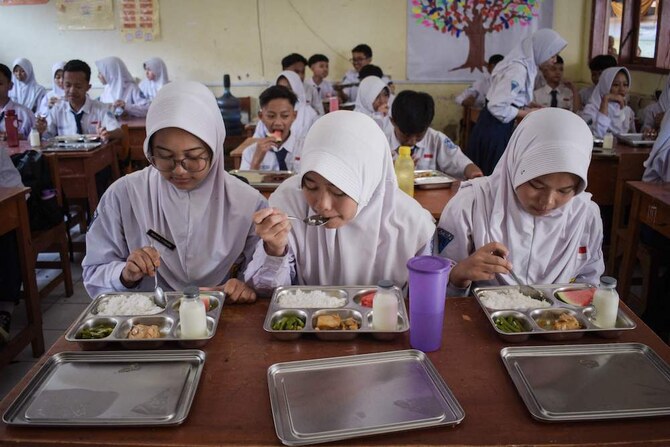The UN General Assembly endorsed a sweeping accord to ensure safe and orderly migration Wednesday over opposition from five countries, including the US and Hungary.
The Global Compact for Migration, the first international document dealing with the issue, is not legally binding. But the escalating debate over people leaving their home countries for new ones has sparked increasing opposition and reservations among the UN’s 193 member states.
The General Assembly resolution endorsing the compact was approved by a vote of 152-5 with Israel, the Czech Republic and Poland also voting “no” and 12 countries abstaining. The vote in favor of the resolution was lower than the 164 countries that approved the agreement by acclamation at a conference in Marrakech, Morocco, earlier this month.
The compact represents a UN-led effort to crack down on the often dangerous and illegal movements of people across borders that have turned human smuggling into a worldwide industry, and to give migrants seeking economic opportunity a chance to find it.
UN Secretary-General Antonio Guterres welcomed the resolution’s adoption, saying the compact provides a platform for international cooperation that points the way “toward humane and sensible action to benefit countries of origin, transit and destination as well as migrants themselves.”
“It calls for greater solidarity with migrants in situations of appalling vulnerability and abuse,” the UN chief said. “And it highlights the imperative of devising more legal pathways for migration, which would also help to crack down on trafficking and exploitation.”
Remittances
Guterres told the Marrakech conference that “more than 60,000 migrants have died on the move since the year 2000” and called the loss of lives “a source of collective shame.”
The secretary-general and other supporters of the compact contend that migrants contribute to the world economy, including by providing needed workers in aging rich countries and returning cash to poorer home countries through remittances.
The US and other opponents argue that the compact is attempting to “globalize” how migration is carried out at the expense of the sovereignty of individual countries, and is trying to make new international law. Supporters counter that the compact is non-binding and every country remains sovereign and in charge of its borders and migration policy.
Before the vote, General Assembly President Maria Fernanda Espinosa called the compact “a historic opportunity to cooperate, exchange good practices and learn from each other so that migration, a phenomenon that has marked the history of humanity, benefits all of us.”
“Who can be against guidelines that strengthen the fight against migrant trafficking and human trafficking?,” she asked, stressing that “no state, as powerful as it may be, is able to resolve alone the challenges of international migration.”
‘Serious mistake’
By contrast, Hungary’s Foreign Minister Peter Szijjarto, whose country’s right-wing Prime Minister Viktor Orban is vehemently opposed to migration, warned the assembly that approving the “unbalanced, biased and extremely pro-migration” compact would be “a serious mistake.”
“This document describes migration as if it would be the best thing what (cq) has ever happened to humanity,” he said. “But this is not true. Migration is a dangerous phenomenon” that has destabilized countries of origin and transit and “put enormous security risk on countries of destination.”
Szijjarto said Hungary is also concerned “that this document will contribute to launch new massive migratory flows all around the world, which will put enormous risk around the globe.”
The assembly chamber remained silent after Szijjarto’s speech but after Philippines Foreign Secretary Teodoro Locsin Jr. spoke out in strong support of the compact, diplomats burst into loud applause.
Locsin stressed that “the compact does not derogate one iota from sovereignty, but it reveals sovereignty’s fundamentally moral nature.”
“A key aspect of sovereignty is the care states must take of people inside them, even if they are on the move from countries of origin through countries of transit to where they finally end up to be welcomed or booted out,” he said.
Locsin said the compact “merely speaks truth to sovereign power and reminds it of its moral aspect.” And it mildly suggests “what might be done out of decency about the problems encountered by migrants. It does not tell states what to do,” he said.
Locsin said that “Western countries would be cesspools without migrants.”
“Migrants are not slaves in transport, but free human beings on the move, with more courage to improve their condition aboard, than ... to persist in the wretched places they must flee or perish,” Locsin said. “Sometimes the needs of state and migrants overlap, sometimes not.”
The drafting process for the global compact was launched after all 193 UN member states, including the US under President Barack Obama, adopted a declaration in 2016 saying no country can manage international migration on its own and agreed to work on a pact.

























